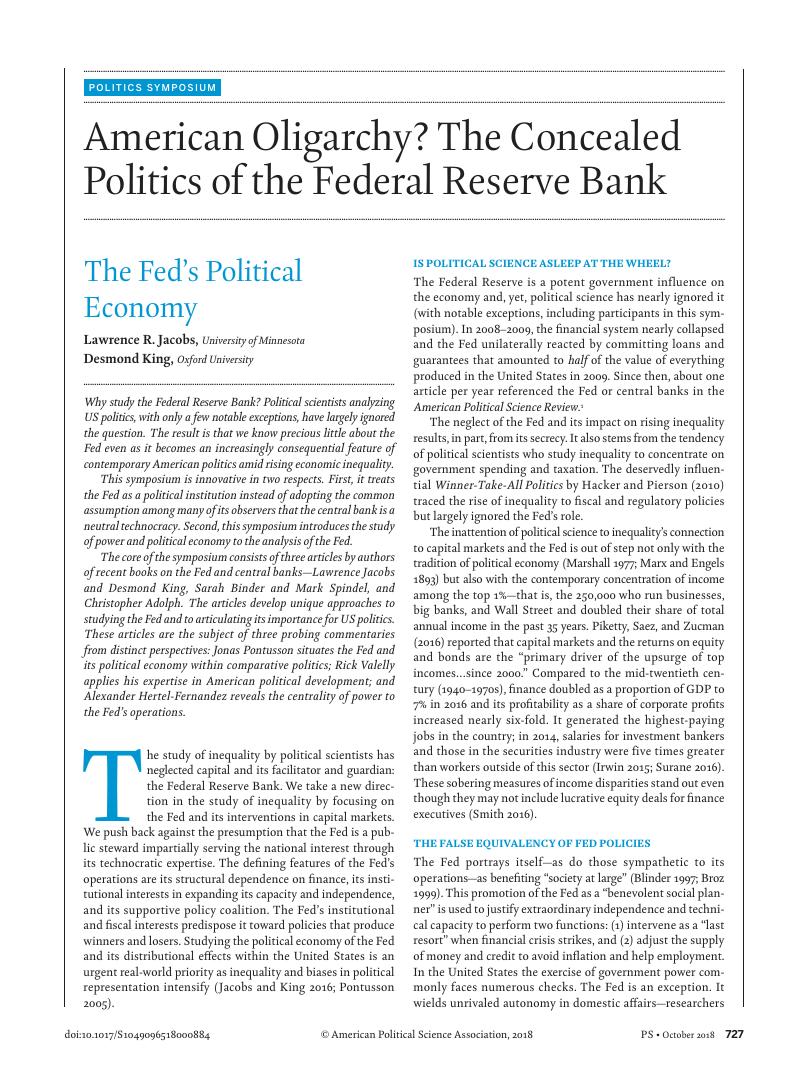Crossref Citations
This article has been cited by the following publications. This list is generated based on data provided by Crossref.
Ainsley, Caitlin
2021.
Decentralized central banks: Political ideology and the Federal Reserve System of regional banks.
Governance,
Vol. 34,
Issue. 2,
p.
277.
Kaya, Ayse
2022.
The Federal Reserve’s move to an explicit inflation target: incremental policy shifts in techno-political institutions.
Review of International Political Economy,
Vol. 29,
Issue. 5,
p.
1625.



